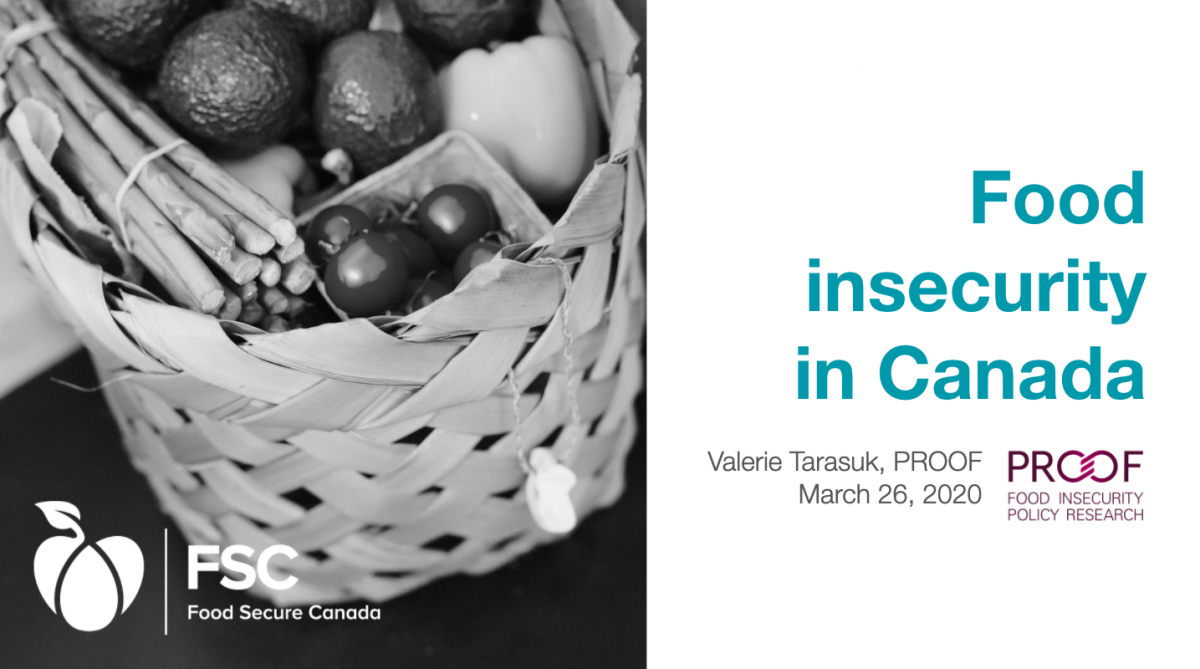With millions of Canadians facing food insecurity, it’s time for universal basic income

FRIDAY MARCH 27, 2020 –
The latest data shows that 1 in 8 Canadians experience food insecurity, and with Covid-19, this number is now set to increase. As we see scores of people lose their jobs and businesses close, many more in our communities are at risk of facing hunger. However, there is one key policy solution which can prevent further food insecurity: universal basic income. Universal basic income means that no one in Canada would fall below a set income floor, indexed for cost of living and location.
Yesterday, over 300 people joined a webinar hosted by Food Secure Canada on the latest food insecurity statistics, presented by Dr. Valerie Tarasuk from the PROOF food insecurity research program at the University of Toronto. Tarasuk explained that before Covid-19, more Canadians were experiencing food insecurity than ever before, a number that has risen to 4.4 million people, including 1.2 million children under 18. Food insecurity damages the health and wellbeing of adults and children. People who are food-insecure are much more likely to suffer from chronic physical and mental health conditions and have lower life expectancy. Certain groups are more vulnerable, with food insecurity in Indigenous and racialized households at two to three times the national average. Dr. Tarasuk also demonstrated that Old Age Security - a type of universal basic income for seniors - has had a positive impact on reducing food insecurity for the elderly, for example. She went on to say,
“Everything we know
about household food insecurity in Canada suggests that without effective responses to the hardships brought on by COVID-19, food insecurity will increase in prevalence and severity, and the health implications of being food insecure will become even more dire.”
While the new federal stimulus package will provide urgently needed support, research has shown that prior to Covid-19, income assistance programs were already insufficient, with two thirds of people on social assistance still experiencing food insecurity. As Tarasuk concluded, “We need an income floor that is sufficient to meet basic needs and available to all.” Too many of Canada’s current income support programs are tied to previous employment status, she explained.
The current crisis highlights inequalities in our food system, where those who grow, harvest, process, prepare and deliver our food often work in precarious situations. These inequalities are set to deepen unless we take bold, preventative action. According to Gisèle Yasmeen, Executive Director for Food Secure Canada,
“We hope the details of
this stimulus package and further government action will be an opportunity to support the kind of deep transitions that will lead to healthy, just and sustainable food systems in an immediate and practical way.”
Now more than ever, it is clear not only in research but also in our own neighbourhoods that we need to realise the right to food, for all Canadians. The government must step up to fulfilling its obligations to guarantee the right to food, as signatories to the UN Declaration of Human Rights and the International Covenant on Economic, Social and Cultural Rights, which Canada signed in 1976. While we recognize the importance of providing immediate support for short-term food provisioning during this crisis, we would like to see a commitment to move away from a charity model and toward guaranteeing the right to food through basic income measures, relative to the cost of living, and indexed based on location.
As the government, civil society and communities across Canada take action in the face of this unprecedented crisis, this is a once in a generation chance to transform our food system.
For those who were not able to attend the webinar:

